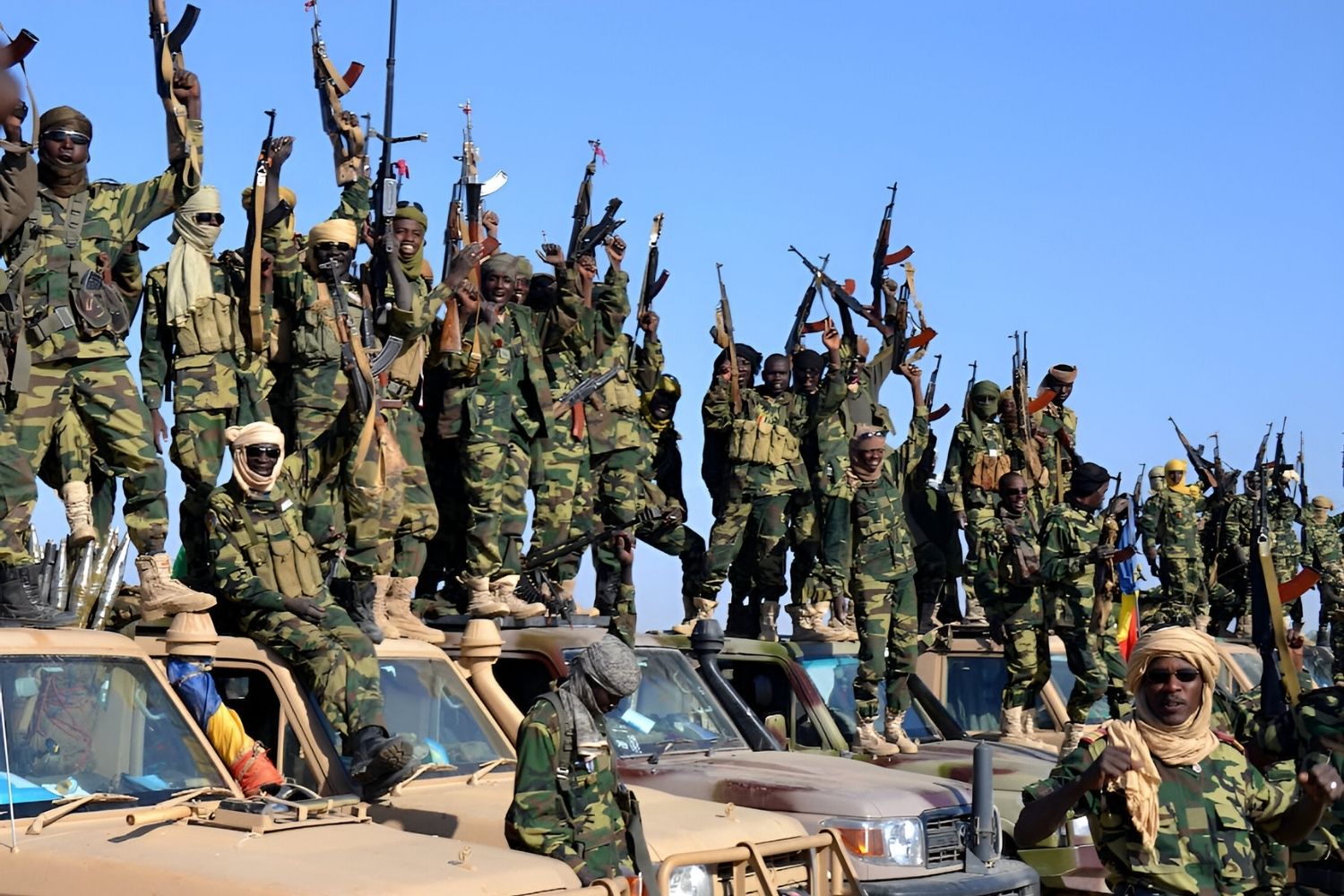
What sparked the Chadian–Nigerian War? The Chadian–Nigerian War, a conflict that erupted in 1983, began due to territorial disputes over the oil-rich Lake Chad region. Both nations claimed sovereignty over the same area, leading to escalating tensions. How long did the conflict last? The war lasted for a brief period, from April to May 1983. What were the key outcomes? Despite the short duration, the war resulted in significant casualties and strained relations between Chad and Nigeria. Why is this conflict significant? Understanding this war helps grasp the complexities of African geopolitics and the impact of natural resources on international relations.
Key Takeaways:
- The Chadian–Nigerian War in the 1980s was sparked by a fight over the Lake Chad region, involving battles, international players, and leaving lasting scars on the people and the environment.
- This little-known conflict highlighted the importance of regional cooperation, governance, and respect for human rights, shaping the politics and relations of Chad and Nigeria.
Background of the Chadian–Nigerian War
The Chadian–Nigerian War, a lesser-known conflict, took place in the 1980s. This war involved Chad and Nigeria, two neighboring countries in Central and West Africa. Understanding this conflict requires delving into its causes, key events, and outcomes.
- The war began in 1983 due to territorial disputes over the Lake Chad region.
- Lake Chad is a vital resource for both countries, providing water for agriculture and fishing.
- The conflict was part of a larger series of regional disputes involving multiple countries around Lake Chad.
- Nigeria's military intervention aimed to support Chadian rebels against the government of Hissène Habré.
- Hissène Habré, the Chadian president, was known for his brutal regime and human rights abuses.
- The conflict saw the involvement of France, which had historical ties to Chad as a former colony.
Key Battles and Military Engagements
Several significant battles and military engagements marked the Chadian–Nigerian War. These confrontations shaped the course of the conflict and influenced its eventual resolution.
- The Battle of N'Djamena in 1983 was a major confrontation where Nigerian forces attempted to capture Chad's capital.
- Nigerian troops faced fierce resistance from Chadian forces loyal to Hissène Habré.
- The Nigerian Air Force played a crucial role in providing air support during ground operations.
- Chadian rebels, supported by Nigeria, launched guerrilla attacks against government forces.
- The conflict saw the use of Soviet-made weapons supplied to both sides by different international allies.
- The war led to significant casualties on both sides, with many soldiers and civilians losing their lives.
International Involvement and Diplomacy
The Chadian–Nigerian War drew the attention of the international community. Various countries and organizations played roles in mediating and influencing the conflict.
- France provided military assistance to Chad, including weapons and training for Chadian troops.
- The Organization of African Unity (OAU) attempted to mediate peace talks between the warring parties.
- The United States expressed concern over the conflict, fearing it could destabilize the region.
- Libya, under Muammar Gaddafi, supported Chadian rebels against Hissène Habré's regime.
- Diplomatic efforts by neighboring countries, such as Cameroon and Niger, aimed to de-escalate tensions.
- The conflict highlighted the complexities of Cold War politics in Africa, with both the Soviet Union and the United States having vested interests.
Humanitarian Impact and Aftermath
Wars often leave lasting scars on the affected populations. The Chadian–Nigerian War was no exception, with significant humanitarian consequences and long-term effects.
- Thousands of civilians were displaced due to the fighting, leading to refugee crises in neighboring countries.
- The war disrupted agricultural activities, causing food shortages and economic hardship.
- Human rights abuses, including torture and extrajudicial killings, were reported on both sides.
- The conflict exacerbated ethnic tensions within Chad, leading to further internal strife.
- Post-war reconstruction efforts faced challenges due to the extensive damage to infrastructure.
- The war's end did not bring immediate peace, as sporadic violence continued in the region.
Legacy and Historical Significance
The Chadian–Nigerian War, though not widely known, holds historical significance. Its legacy continues to influence the politics and relations of the involved countries.
- The conflict highlighted the importance of regional cooperation in resolving disputes.
- It underscored the need for effective governance and respect for human rights to prevent such wars.
- The war's impact on Lake Chad's environment remains a concern, with ongoing efforts to manage the shared resource.
- Nigeria's involvement in the conflict demonstrated its regional influence and military capabilities.
- The war served as a reminder of the lingering effects of colonial borders and their role in modern conflicts.
- Lessons learned from the Chadian–Nigerian War continue to inform peacekeeping and conflict resolution strategies in Africa.
Reflecting on the Chadian–Nigerian War
The Chadian–Nigerian War left a lasting impact on both nations. It highlighted the complexities of border disputes and the challenges of maintaining peace in volatile regions. The conflict, though brief, underscored the importance of diplomacy and international mediation in resolving such disputes. Both countries learned valuable lessons about cooperation and the need for stronger regional alliances. The war also brought attention to the broader geopolitical dynamics of Central Africa, influencing future policies and strategies. Understanding this conflict helps us appreciate the delicate balance required to maintain peace and stability in regions with historical tensions. As we reflect on these events, it's clear that the path to lasting peace involves not just resolving disputes but also fostering mutual respect and understanding among neighboring nations.
Frequently Asked Questions
Was this page helpful?
Our commitment to delivering trustworthy and engaging content is at the heart of what we do. Each fact on our site is contributed by real users like you, bringing a wealth of diverse insights and information. To ensure the highest standards of accuracy and reliability, our dedicated editors meticulously review each submission. This process guarantees that the facts we share are not only fascinating but also credible. Trust in our commitment to quality and authenticity as you explore and learn with us.
